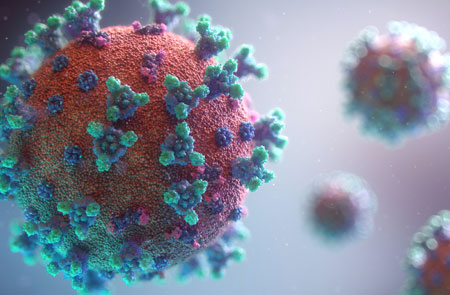Blog Details

Don’t take lasting breathlessness lightly
COVID-19 has been now documented to affect patients for a prolonged period after recovery. COVID-19 can involve minor to severe respiratory illness, but this illness can persist even after symptoms resolve. In fact, breathlessness can occur even after months of recovery from the virus, and breathlessness is also the number one reported symptom in COVID-19 cases during recovery and post-recovery.
COVID-19 affects the lungs and multiplies to cause damage in several ways. For instance, breathlessness may be caused by damage to lungs and may result in pneumonia. Although breathlessness may not always be an indicator of decreased lung function or lung damage, lung issues are common in patients with persistent breathlessness after recovery from COVID-19. A major study identified abnormalities in the lungs of those facing breathlessness after COVID-19, including issues such as oxygen-transfer and lung impairment. Ignoring post-recovery symptoms could also lead to the development of other issues, such as diabetes and heart disease.
Thus, dismissing issues of breathlessness would not be prudent as it may be indicative of underlying lung issues and may give rise to new health conditions.

In a study, COVID-19 positive patients suffering from severe cases with symptoms of breathlessness were examined in order to ascertain whether lung inflammation occurred. Indeed, lung inflammation was discovered to be an underlying cause of lung damage and breathlessness caused by COVID-19.
One of the issues that may be causing underlying lung issues is long COVID-19, wherein symptoms of COVID-19 persist for a long time. Unfortunately, there are no tests developed to test for long COVID-19. But one of the major symptoms of long COVID-19 is shortness of breath or breathlessness due to permanent or long-term lung damage. Although at times, long COVID-19 may resolve on its own over a period of time, a possible case of long COVID-19 should always be taken to one’s general physician for any recommended treatment. For example, some patients may need breathing exercises or pulmonary rehabilitation to improve symptoms of breathlessness.
COVID-19 bronchitis is a condition where excessive amounts of sputum is produced in the airways, resulting in coughing and chest congestion. This could be an underlying cause of breathlessness in COVID-19-recovered patients. A persistent cough that stays for a long time after recovery is a sign of bronchitis developed due to COVID-19.
Pneumonia
Pneumonia is a condition where the air sacs in the lungs are filled with fluid and can become inflamed, thereby causing difficulties in breathing. Pneumonia can be deadly and can affect the oxygen assimilation of the body as the lungs struggle to absorb oxygen. Signs of pneumonia may include breathlessness and coughing amongst others. Pneumonia may require oxygen supplementation or ventilator treatment.
Superinfection
Due to weakened immunity, the body becomes more susceptible to contracting additional infections while it combats the COVID-19 virus. This is called a superinfection and may cause greater lung damage. According to an expert, one of four patients develop a superinfection. India is a bustling country with congested cities. Proper wearing of face masks and social distancing protocols could prevent contraction of infections, which might exacerbate lung damage.
Sepsis
Sepsis could cause an infection of the blood stream, which can impact different organs, and thereby causing severe damage to lungs. Sepsis can cause shutting down of organs one after the other as they are interdependent for their functioning, and survivors of sepsis might have to live with life-long impaired functionality of lungs. Untreated sepsis is fatal and needs to be diagnosed and treated at the earliest.
Acute Respiratory Distress Syndrome (ARDS)
Untreated pneumonia may cause the air sacs filled with fluid to become completely unable to assimilate oxygen through normal breathing. ARDS is basically the onset of lung failure and persistent or worsening breathlessness can be a symptom of the same. ARDS may require ventilator support for circulation of oxygen. ARDS can be fatal and survivors of ARDS may suffer from permanent pulmonary scarring and lung damage.
Short-term methods to ease breathlessness:
While one should consult a general physician at the earliest, if you face issues of breathlessness, the following may ease breathlessness in the short-term:
For more information on living with a lung condition, visit - https://thehealthylungs.com/living-with-a-lung-condition.php
Approaching a doctor:
It is imperative that you approach a general physician at the earliest if you’re facing breathlessness with a note on the following information:
© 2026 Healthy Lungs.